Call of Duty: The controversies and sales
- Published
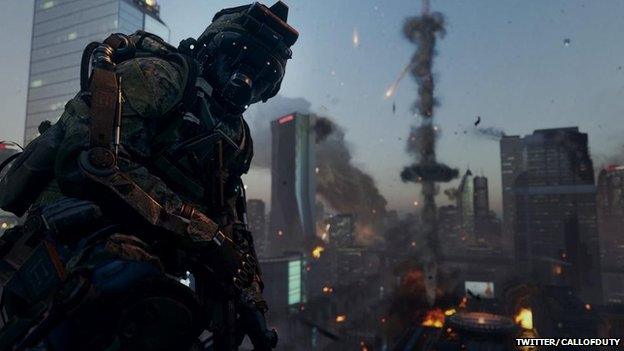
Call Of Duty Advanced Warfare is set 40 years in the future
It's a big day in the gaming calendar as Call Of Duty: Advanced Warfare launches.
The game follows 10 other major console releases in the series, with early reviews, external giving some pretty high praise.
Over the last 11 years, the title has sold millions of copies worldwide.
But it's safe to say that since the 2003 launch of Call of Duty, the first-person shooter has faced its fair share of controversy.
Bigger than Frozen
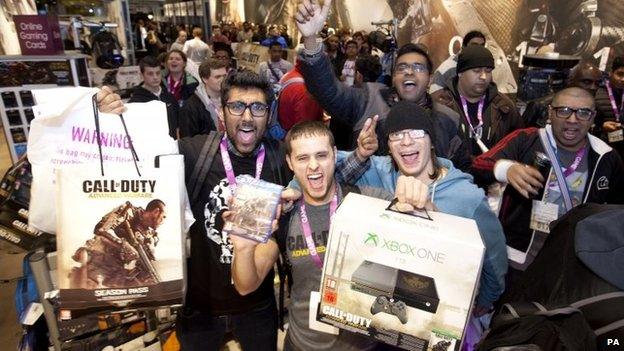
Gamers waited outside shops for the release of Call Of Duty Advanced Warfare
The Call of Duty series has sold nearly 140 million copies worldwide.
Last year's release, Call of Duty: Ghosts, made around £620m in it's first day of sale.
Compare that with the top grossing film of last year Frozen which, having taken £644.38m at the global box office since being released in November 2013, was named the top-grossing animated film in box office history in March.

Frozen was released in North America on 29 November 2013
In 2010, Call of Duty: Black Ops became the top-selling game of all time, a title which has since been claimed by Grand Theft Auto V, which took just three days to generate $1bn (£620m) in revenue after being released on 17 September 2013.
Call of Duty: Modern Warfare 3 made nearly £500m in sales globally during the first five days of its release in 2011.
But with one of its main rivals in the first-person shooter genre, Battlefield 4, picking up a Golden Joystick award for best multiplayer game the pressure is on for the new game to deliver.
No room for 'toxic behaviour'
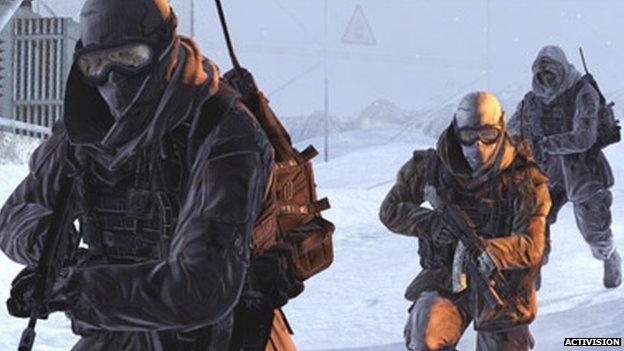
The Call of Duty: Modern Warfare 2 level No Russian gave gamers the option kill group of people at an airport
Despite its level of global success, the series isn't new to criticism with suggestions that the games incite violence.
One example surrounded a level called No Russian in Call of Duty: Modern Warfare 2.
The level, which gamers did have the option to skip, gave players the choice to kill a group of innocent characters at an airport.
It was so heavily criticised that the game was debated in parliament, external with MP Keith Vaz saying he was "absolutely shocked" by the violence in the game.
Fellow Labour MP Tom Watson disagreed with the comments, encouraging gamers to join a Facebook group set up to help defend games from critics.
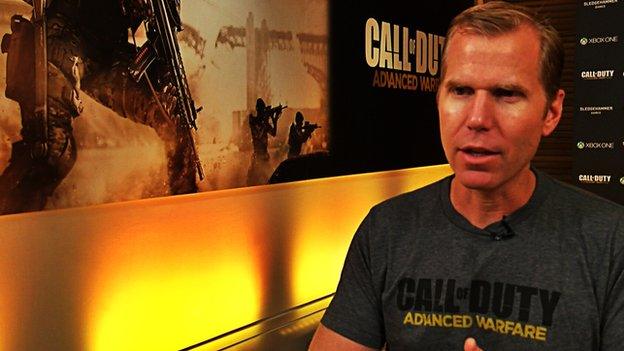
Call of Duty lead developer Michael Condrey
Speaking to Newsbeat ahead of Advanced Warfare, lead developer Michael Condrey said: "Come to the game to have fun, come to be social, come to enjoy and build a community and have a positive energy.
"Toxic behaviours, abusive language, inappropriate emblems, I don't want that around.
"So for our community, Sledgehammer Games and Advanced Warfare we have pretty low tolerance for toxic behaviour."
Moving on from Ghosts
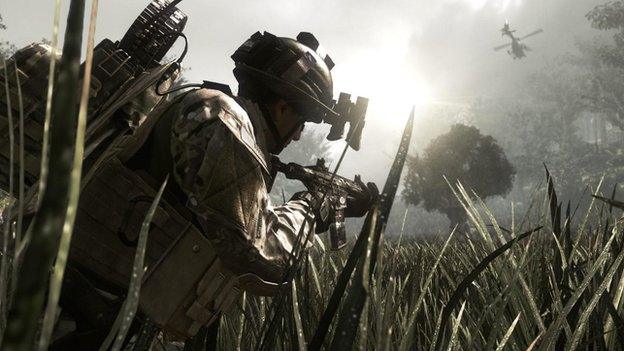
Reviews of Call of Duty: Ghosts reported problems with the graphics on the PlayStation 4 edition of the title
Last year, the release of Call of Duty: Ghosts was met with mixed reviews with claims that the game's frame-rate dropped at several points during play causing a stutter-effect.
At the time, its creator told Newsbeat that developing the game for next generation consoles had been "a massive challenge".
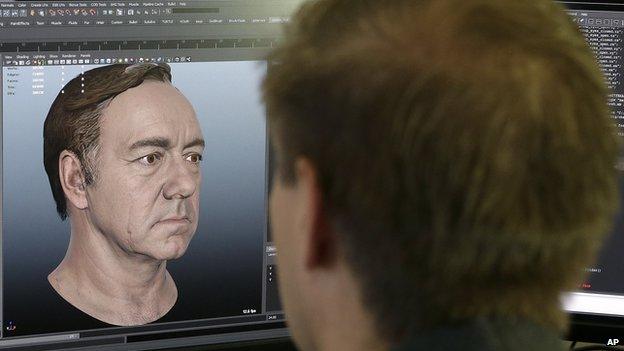
A technical artist works on the face of actor Kevin Spacey for Call of Duty: Advanced Warfare
To live up to expectations, and potentially draw in new fans for Advanced Warfare, the game has been given futuristic fighting, multiplayer options galore and a star turn from Kevin Spacey.
But despite getting help of a-listers, another of the developers, Brett Robbins, told Newsbeat they were focussed on making a game that fans would enjoy.
He said the new game "had to feel like Call of Duty, it had to be new and it had to be futuristic".
Call of Lawyers
And if violence and dodgy graphics weren't enough, the makers have had a few problems in real-life.
In 2010 Infinity Ward, the Californian video games developer behind early editions of the game, were suddenly dismissed by owner Activision for unspecified "breaches of contract and insubordination".
There had been rumours of a rift between Infinity Ward and Activision but the move, and the subsequent lawsuit, still shocked the games industry.
Follow @BBCNewsbeat, external on Twitter and Radio1Newsbeat, external on YouTube